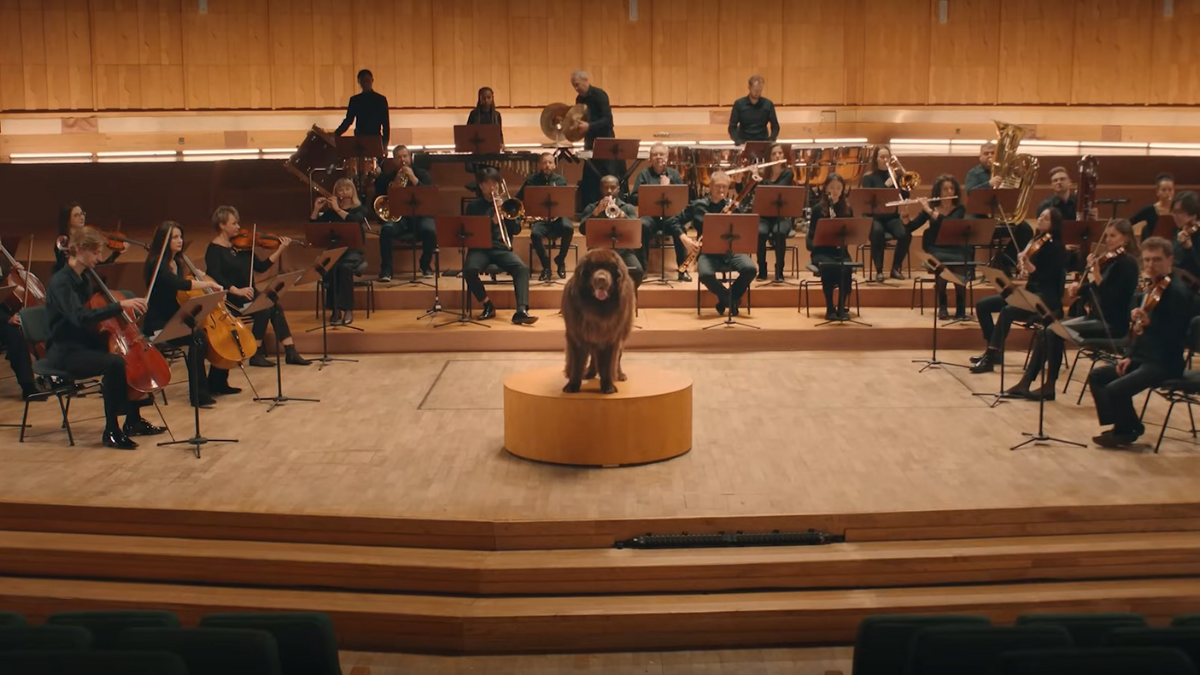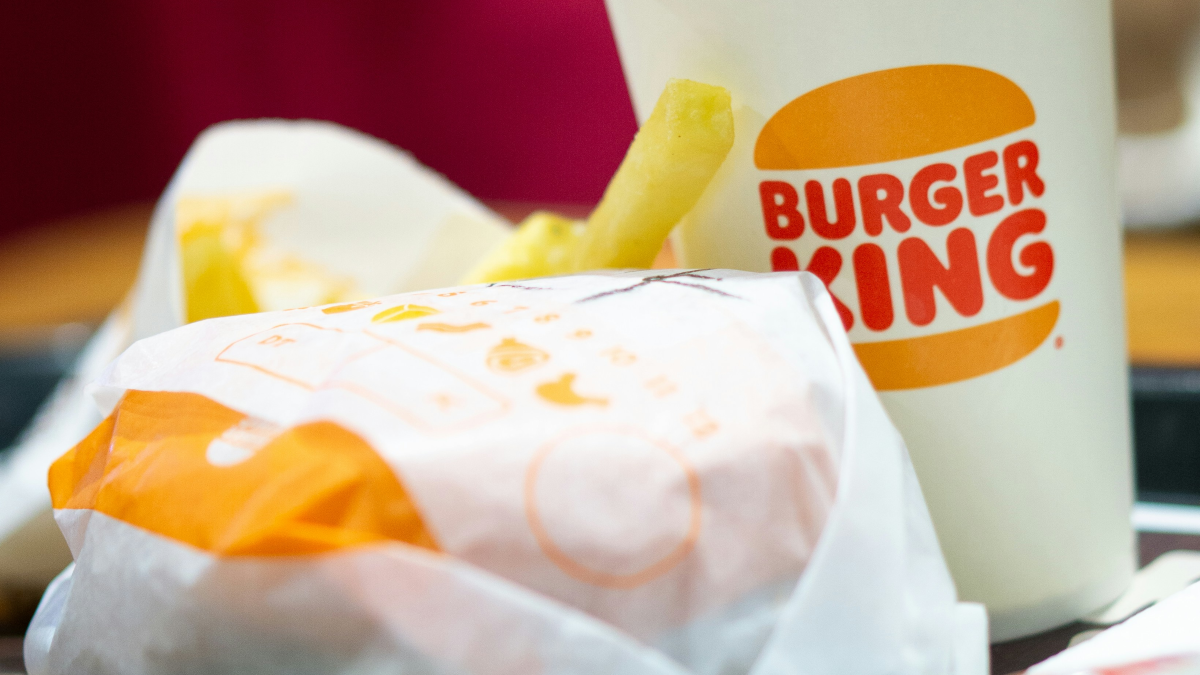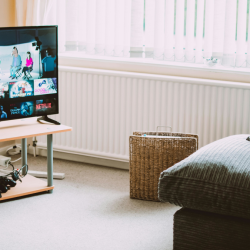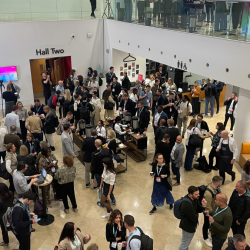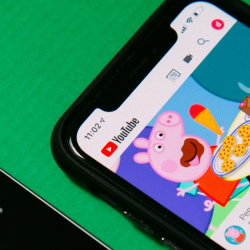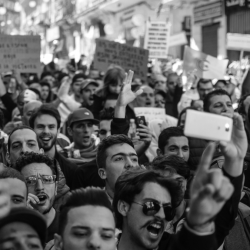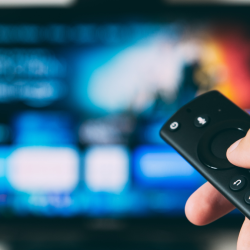In January, executives and department heads at EssenceMediacom predicted eight things that would happen in the media industry in 2024. How did they do?
In the spirit of accountability, the agency’s joint CSO, Richard Kirk, partner Andrew Monks, and its head of planning, James Parnum, spoke to MediaCat about what they got right and what they got wrong with their forecasts for 2024.
Prediction 1: YouTube will leapfrog Netflix on TV
BARB data reveals that hours spent with YouTube on TV grew 32% last year, while Netflix hours plateaued at +0.4%. If this rate continues, we will see them swap places, in terms of average daily viewing, in December 2024 — Robyn Sumners, director, Andrew Monks, partner
There’s a bit of disagreement amongst the team on this one. Monks insists the data shows that people still watch slightly more Netflix than YouTube on their TVs, but Kirk argues that Netflix’s lead is well within the bounds of statistical variance for panel data, and the platforms are, in reality, neck and neck.
For most of the year it looked like YouTube was going to sail past Netflix, says Monks, but in August Netflix’s performance began to improve and, as of 8 December, its viewing time was up 8% year on year. Nonetheless, the data still trends in the same direction and the switch will ‘definitely’ take place before the end of February, according to Monks.
As someone who loves TV, Monks says this is all great news. ‘There’s been this prevailing narrative about TV dying, but it’s just constantly evolving, isn’t it? The amount of time people spend with their TV sets has changed barely at all in 20 years. TV is still the biggest canvas for brand building.’
EssenceMediacom scores itself nine out of 10 for this prediction.
Prediction 2: The New York Times will win its case against OpenAI
As the accuracy of full answers in AI Search improves, trust in AI-generated answers grows […] So while 2024 should be a bumper year for news brands, traditional publishers could be set to lose as much as 40% of their traffic to Google’s AI-powered Search and other GPTs — Geoff de Burca, joint chief strategy officer
At the end of last year, the EssenceMediacom team suspected that in 2024 a news organisation would sue OpenAI for training its software on the publisher’s content without permission. But by January events had overtaken EssenceMediacom and the New York Times had already begun its lawsuit against the AI company, so the agency predicted the outcome of the case instead.
‘We were ahead of our time when we originally predicted it,’ says Parnum, ‘but it’s still way too early to say [which party will win].’
So, EssenceMediacom gives itself a tentative five out of 10 for this prediction.
Prediction 3: Twitter (X) will censor Elon to save itself
The safe bet is Twitter disappears with Musk blaming advertisers for killing it. But Linda Yaccarino [CEO of X], or whoever follows her, could change the narrative by removing or publicly refuting Musk’s tweets, maybe even temporarily suspending his account. Only a move this big and bold is likely to be noticed by advertisers — Richard Kirk, joint CSO
Obviously, neither of these things happened. ‘But our point,’ says Kirk, ‘was that maybe Twitter’s more than a revenue generator to Musk, so it’s kind of been proven right.’
‘Kind ofs’ aside, EssenceMediacom gives itself three out of 10 for this one.
Prediction 4: Digital goes from being the most to least consistently measurable media
The transition from analogue to streaming in the entertainment industry serves as a modern analogy for the deprecation of third-party cookies. Much like how video rental and music shops were slow to adapt to the rise of streaming services like Netflix and Spotify, many advertisers aren’t prepared for a cookieless future — Oliver Betts, data practice head of growth
It would be unduly harsh to say that Google torpedoed this prediction by announcing it no longer intended to phase out the use of third-party cookies in its Chrome browser. The proposed alternative, an as-yet undefined mechanism for giving users an ‘informed choice’ about tracking, will amount to the same thing, if people have to opt in to accept cookies.
Already, says Kirk, media brands that had been reliant on cookies are now on the same page as legacy publishers in advocating for media mix modelling (MMM).
‘And when you put all [the publishers and platforms] into the same measurement methodology with MMM,’ adds Kirk, ‘it tends to be the more public, larger formats that give you the clearest read. So in many respects, we were completely right.’
After docking some points for Google’s unexpected change of mind, the agency gives itself seven out of 10 for this prediction.
Prediction 5: A UK retail media trade body is founded, without Amazon
For retail media to truly revolutionise digital advertising and establish itself as the third wave of the industry, it needs a robust competitive landscape that pits Amazon against a unified coalition of major UK retailers — Claudia Ziegenbein, head of search and ecommerce practice partner, Nick Baldwin, ecommerce practice partner
‘Definitely one of our punchier predictions,’ says Parnum. ‘Actually, it was more of a hope than a prediction, that all boats would rise if retailers worked together a bit more.’
And while no such trade body has materialised, Parnum notes that the Incorporated Society of British Advertisers (Isba) has sought to bring retail media partners together and subscribe to standard practices with the Responsible Retail Media Framework.
Nevertheless, this prediction scores just three out of 10.
Prediction 6: AI will help marketers save millions from streamlined production processes, allowing them to invest more in distribution
Our provocation is that the greater the savings in production, the greater the budget available for distribution. While we might have previously seen an 80:20 split between media and creative — based on modelling by EssenceMediacom’s Media Mix Navigator, if production costs drop by a quarter, advertisers could reallocate that budget to generate up to a 5% increase in advertising-driven revenue — Tom Curtis, ECD
‘This is happening,’ says Kirk. If you look at any lower-funnel platform — Amazon Ads, Facebook, Google — they’re all rapidly deploying tools and technology that help you build an advertising campaign from the barest of materials, and that’s dramatically streamlining the work at the end of the funnel.
‘At the other end of the spectrum, ITV have been talking about how they’re able to now produce creative advertising for businesses that have never been on TV before and can’t afford the traditional TV advertising production process. They’re offering them a service whereby the ad is made with AI, massively reducing cost. And Coca-Cola chose to put out an AI-produced ad for their biggest campaign of the year. So you can see from the top to the bottom of the funnel that it’s been adopted reasonably quickly.’
Seven out of 10.
Prediction 7: The 2024 General election will become known as the TikTok election
Our research validates the effectiveness of influencers, with findings showing a 17% higher short-term ROI from influencer campaigns compared to the all-media average […] The message for political campaigners and brands alike is clear: adapt to the new communications economy or risk being left behind — Lucy McMullin, strategy partner
TikTok probably did not have a fundamental impact on the result of the election in the UK, admits Kirk, but that was largely because the result was a foregone conclusion before anyone even went to the polls.
‘What was noticeable was that the leader who did best on TikTok was undeniably [Nigel] Farage’, adds Kirk. ‘He grew his following way more than anyone else, and if you look at the polls, Reform [the party Farage leads] is ahead of the Tories for every demographic under 65, and TikTok is a platform that skews younger. It’s clear it’s become a force in politics.’
A six out of 10 for this one. Which is respectable, as far as political forecasting goes.
Prediction 8: In 2024 we will see the biggest year for advertiser-funded programming ever
If done right, ad-funded programming offers a huge opportunity for advertiser effectiveness. TV still holds top position as the medium with the highest signal strength, attention and reach. Brands that can create content audiences actively want to watch in this prestige space have the chance to reap the greatest rewards — Claire Prince, head of branded entertainment
‘This definitely happened,’ says Parnum. A source at ITV told the agency that the broadcaster had more discussions about advertiser-funded programming than ever, and commissioned 15 such projects in 2024, up from just three in 2023.
So, EssenceMediacom goes out on a high note with a 10 out of 10 for this prediction.
By no means did the agency demonstrate super-forecaster levels of accuracy with its predictions for 2024, but as Parnum notes, ‘If we got them all right then we probably weren’t predicting hard enough.’
Main image by Lucrezia Carnelos on Unsplash























